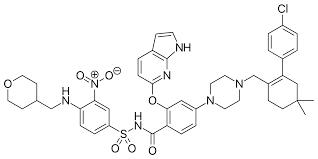Some good news!
Today the National Institute for Health and Care Excellence (NICE) published the Final Appraisal Determination (FAD) recommending venetoclax (Venclyxto) be made available to treat chronic lymphocytic leukaemia. Access has been granted via the Cancer Drugs fund, through a managed access program. This enables accelerated access to the treatment by CLL patients and their doctors whilst additional data is collected.
We have published a news article and summary for you here: - leukaemiacare.org.uk/news/n...
In Brief
NICE recommendations
1.1 Venetoclax is recommended for use within the Cancer Drugs Fund, within its marketing authorisation, as an option for treating chronic lymphocytic leukaemia; that is in adults:
•with a 17p deletion or TP53 mutation and when a B-cell receptor pathway inhibitor is unsuitable, or whose disease has progressed after a B-cell receptor pathway inhibitor or
•without a 17p deletion or TP53 mutation, and whose disease has progressed after both chemo-immunotherapy and a B-cell receptor pathway inhibitor and
•only if the conditions in the managed access agreement are followed.
When a treatment is approved for use within the Cancer Drugs Fund, NHS England make it available according to the conditions in the managed access agreement. If a patient has chronic lymphocytic leukaemia and their doctor thinks that venetoclax is the right treatment, it can now be accessed in line with the above recommendations.
Venetoclax is anticipated to remain available through the CDF during the data collection period until December 2020 and during a subsequent appraisal, while the final guidance is reviewed. A final decision is expected in early 2021.
Read completed article: - leukaemiacare.org.uk/news/n...
The complete Guidance FAD document, committee papers and managed access agreement can be accessed here: nice.org.uk/guidance/gid-ta...
Nick
:

 There is a growing UK population that have been on V for a while as the Early Access to Medicines Scheme and a compassionate access programme have allowed access over the past year.. We are now going to see more success stories, fingers crossed
There is a growing UK population that have been on V for a while as the Early Access to Medicines Scheme and a compassionate access programme have allowed access over the past year.. We are now going to see more success stories, fingers crossed